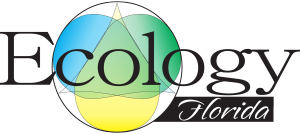Title: What Would the Buddha Recycle?: The Zen of Green Living
Author: Rosemary Roberts
Fun book, loosely based on Buddhism’s Noble Eight-Fold Path. Offers numerous practical tips on sustainable living in the context of Buddhism. Depiction of Buddhism is largely accurate, although specialists might quibble. It is not a textbook on Buddhism — it is fun, easy to read, quick to digest self-help book for a popular audience.
[divider top=”0″]
Title: World Without Fish
Author: Mark Kurlansky
This is a book for young readers — but a great primer for folks of all ages interested the precipitous decline of fish and marine ecosystems due to the industrialization of fish harvesting.
[divider top=”0″]
Title: The End of the Line: How Overfishing Is Changing the World and What We EatAuthor: Charles Clover
Sobering expose of the widespread (and spreading) devastation of marine ecosystems and the stunning collapse of most of the world’s fisheries.
Author is a environmental journalist. Easy to read and rich in data.
[divider top=”0″]
Title: World on the Edge: How to Prevent Environmental and Economic Collapse
Author: Lester R. Brown
Latest book by ecological visionary, Lester Brown, offers a clear (and data-rich) depiction of the most critical ecological challenges facing the planet. An excellent study, and quick read. Brown’s books are very well written, and accessible to readers of all ages. He is unflinching in his depiction of the stark (often scary) realities of economic and social collapse predicated on the destruction of the natural world; but he is also hopeful and offers solutions, what he refers to as “Plan B.”
Of special note is Brown’s affirmation of the foundational principles of Ecology Florida — i.e., that there is a direct and unambiguous relationship between ecologies of culture, nature, and economics. The “Edge” we are on is a consequence of a host of interrelated tipping points in each of the three ecologies. Brown was the founder of World Watch Institute, and currently serves as president of the Earth Policy Institute, author of numerous books, and source of the “Plan B” concept. Plan A, by the way, is “business as usual” — over-production and consumption, fossil fuel economies, overpopulation, obliviousness to environmental externalities.
[divider top=”0″]
Title: Ecotopia
Author: Ernest Callenbach
One of the first eco-novels (maybe the very first). An almost forgotten classic, now out in a new edition. Published in 1975, Ecotopia is remarkably prophetic of sustainability programs and initiatives only now coming on the scene. Set in a future when Washington, Oregon, and Northern California have become the independent nation of Ecotopia. Readers will notice anachronisms that clearly date it to the mid-70s. Be mindful, and we must criticize the text for its sexism and heteronormativity, which was all to common in popular culture novels of this period.
This is not a great work of literature, it is not stylish or in anyway sophisticated; but it is a page-turner and offers intriguing snap-shot of sustainability dreams of nearly 40 years ago.
Ralph Nader observed in an appreciation of the 1975 edition: “None of the happy conditions in Ecotopia are beyond the technical or resource reach of our society.”
